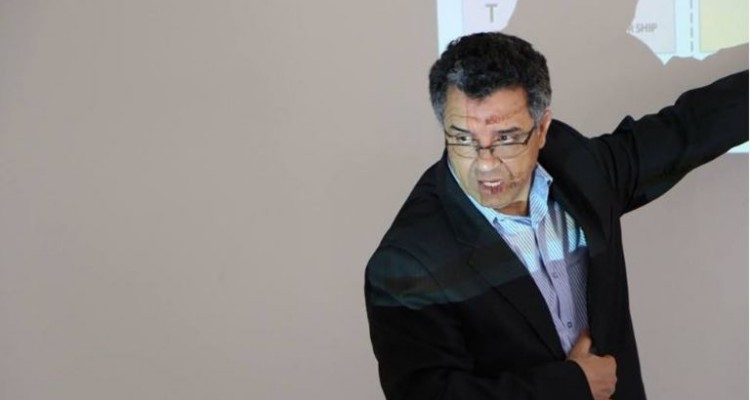In the country of unemployed graduates, Alaya Bettaieb can highlight the good figures from the engineering school which he runs the business incubator: “At the end of their studies, 100% of our students find work. Often very well paid abroad. Those who stay most often create their own business on site in Tunisia. “
A journey entirely geared towards employability. Welcome to Esprit. The abbreviation for Private Higher School of Engineers and Technology of Tunis. We are in the heart of the Al-Ghazala technopole, in the northern suburbs of the Tunisian capital.
This year, Esprit School welcomes approximately 4,800 students. When they’re not wandering the halls, girls and boys find themselves in pairs to work hard on their end-of-studies projects. The mix is total. International culture too and it is not uncommon to come across classrooms of students from all over French-speaking Africa, attracted by the quality of education provided by the school: Mauritania, Benin, Chad …
Since its creation in 2003 under private law status, Esprit’s reputation for excellence has far exceeded the borders of the African continent: technological agreements with the Digital Media Zone in Toronto, academic partnerships with Cisco or Microsoft, university exchanges with Technical University of Munich or the Institut Mines-Télécom in Paris…
“Helping Tunisia stay standing”
Conquering, the Esprit school indulges each year in the luxury of winning a string of technological competitions such as the Imagine Cup or the Global Mobile Challenge. And in student hackatons held simultaneously between engineering schools around the world, the engineering school is often seen as a formidable, almost insolent adversary.
So much so that some campuses preferred to throw in the towel: “Esprit’s students systematically won the challenges, two or three years in a row. Suddenly, some European schools have decided not to put their students in competition with ours anymore, “laments Imed Amri, the director of the research and prototyping center Esprit Mobile, whose trophy shelf overflows.
image: http://s2.lemde.fr/image/2016/03/15/768oquer0/4883181_6_6e6b_le-directeur-de-l-incubateur-de-l-ecole_d0ca11c4dbb71996ed83127938e21758.jpg
The director of the Esprit engineering school incubator, Alaya Bettaieb, and the coach Mariem Ben Maallem receive a young Togolese project leader.
The director of the Esprit engineering school incubator, Alaya Bettaieb, and the coach Mariem Ben Maallem receive a young Togolese project manager. CREDITS: ESPRIT INCUBATOR
The shortage of jobs as well as the strong regional disparities were at the origin of the important social riots which strongly shaken Tunisia between January 16 and 23. In ambush, the jihadist movements, which take advantage of the situation to recruit from the mass of unemployed graduates and downgraded.
To fight unemployment, Esprit decided to act at its level by setting up its own business incubator in 2014, which covers several hundred square meters within the campus. “We are convinced that entrepreneurs can help Tunisia stay standing, ”argues Alaya Bettaieb, director of the Esprit incubator.
Read also: In Casablanca, African start-ups step into the ring
By his side, his assistant, Mariem Ben Maallem, goes further: “Each of the start-ups we support recruits an average of ten people, and this number increases as they develop. By creating jobs and reducing unemployment, entrepreneurship therefore reduces the influence of jihadists. “
At the beginning of each semester, the Esprit incubator takes Tunisian students by the hand who, at the end of their course, leave school and its theoretical lessons to start their own start-up, provided that they have a significant social impact. The incubator provides them with ultra modern offices, coaching, as well as a serious boost to internationalization.
Support for incubates
“Currently, we are helping one of our 2.0 health start-ups to find partners in the United States to produce a prototype smart bracelet, capable of preventing heart disease. I spend my time making phone calls, ”says Alaya Bettaieb. On site, several major technology accounts are involved in supporting incubated companies, including Orange and Samsung. To strengthen its activities, the Esprit incubator received 135,000 euros in funding at the end of 2015 from Proparco, the subsidiary of the French Development Agency (AFD, partner of Monde Afrique ) dedicated to the development of the private sector.
To join the incubator, the competition is frankly tough: only twelve business projects are carefully chosen each year, by promotion of six. Not one more. However, there are hundreds of applicants everywhere. Both Tunis and very disadvantaged interior regions. Alaya Bettaieb justifies this selectivity: “Our top priority is the fight against unemployment. So much so that only companies with high social added value and therefore a measurable impact on Tunisian society interest us. The creation of jobs is a determining factor. “
In the latest promotion of the incubator, projects with high job creation potential were born in big data, transport or connected health. Some start-ups are already in the process of signing their first contracts with international contractors.
Read also: African Leadership Network, network of leaders and start-up incubator
It is to unceasingly uncover new talents that the incubator of Esprit organizes workshops of awareness of entrepreneurship and coaching open to all around social themes. “Tunisian youth are disenchanted,” analyzes Mr. Bettaieb. Our mission is to convince them that it is possible today to create your own job, thanks to digital technology. “
Due to lack of resources, these events have so far remained concentrated on Tunis. But, in 2016, the incubator wants to try to organize its first coaching sessions in the interior regions of Tunisia. The most promising profiles would then have the possibility of joining a pre-incubation program on the Esprit campus, where they will learn how to do business using technology. And to develop “scalable” solutions, that is to say generating income, and developed from their own daily problems. “Basically, we seem to be a lever in the eyes of these entrepreneurs, the possibility of a new start. But all the effort can only rest on us, warns Alaya Bettaieb. In Tunisia, each university, each engineering school, should create its own business incubator in order to effectively fight extremism by creating jobs. “
Learn more at http://www.lemonde.fr/afrique/article/2016/03/15/en-tunisie-entreprendre-c-est-resister-au-chomage-et-au-terrorisme_4883182_3212.html#svovRJUkT64QymyU. 99


Leave a Reply